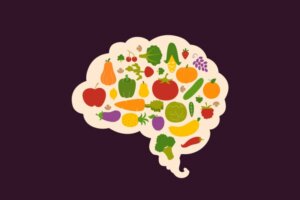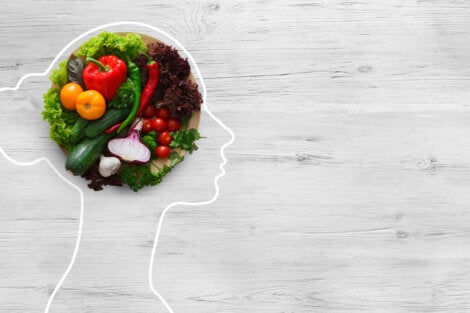What's Psychonutrition?

What’s psychonutrition? It’s the science that studies the relationship between the mind and food. This work is a collaboration between dieticians and psychologists. Psychonutrition doesn’t just study the relationship you have with food but also the emotional patterns deeply embedded in your food choices.
Psychonutrition looks at different behaviors, such as stress eating. The goal is to help people make long-term changes in their eating habits that’ll improve their overall quality of life.

The elements of psychonutrition
Psychonutrition encompasses more fields than just nutrition and psychology. Involving other professionals can improve your results and enhance the treatment on every front. Other professions that could potentially help are personal trainers, psychiatrists, speech therapists, and educators.
The characteristics of a psychonutrition-based intervention are the following:
- Focused on habits related to eating and healthy habits in general. In other words, you won’t just look at the foods you eat but also emotional, social, and professional factors.
- You work on psychological variables related to unhealthy habits and to the development of new skills that help you commit to healthy habits.
- Having a positive self-image and accepting yourself are both important for psychonutrition to work. Fighting against your own body image can cause frustration.
- Considering the context in which you eat, along with other variables that facilitate or negatively affect a healthy diet.
- Help with decision-making and identifying healthy products versus ultra-processed foods. Psychonutrition intervention also usually includes looking at deeply-rooted social constructs, such as the concept of dieting and the nutritional myths that inform people’s choices.
What psychonutrition isn’t
Psychonutrition is a collaboration between many different specialists. It’s important to clarify that point because “psychonutritionsts” don’t exist. As we mentioned above, if you’re going to see help in this area, you’d be working with at least a psychologist and a nutritionist.
Psychonutrition isn’t only about studying the intake of certain foods according to your mood. If, however, they detect in your evaluation that you have unhealthy coping strategies that are harmful in the long term, they’ll come up with a plan to deal with them.
Thus, one of the challenges in psychonutrition is to provide people with more tools and coping strategies for dealing with their issues.
You won’t see the results of psychonutritional intervention overnight. This field deals with habits that are very ingrained and take time to redirect, change, or eliminate. On the other hand, these are results that go far beyond weight loss. The ultimate goal is to positively change your relationship with food.

The work of a psychologist in psychonutrition
As you’ve seen, a psychologist’s work in this particular area goes beyond eating disorders. Other disorders can also play a role, such as anxiety derived from different issues such as body-image problems.
The evaluation of the use of restrictive diets as ways to compensate for something else is only a part of the psychologist’s work. Here are some of their other potential roles:
- Evaluating eating habits and the use of certain foods in specific contexts.
- Education and raising awareness so that the patient chooses healthy foods more often.
- Working on body image and coping strategies.
- Reducing the level of demand and helping people have realistic expectations of how long it’ll take to get results.
- Helping the individual work on acceptance and change with a particular focus on the consumption of foods that are rejected.
- Emotional education and coping strategies.
- Developing awareness of the physical sensations related to hunger and fullness.
In a psychonutrition consultation, emotions are especially important. The skills the patient has to be able to adopt certain healthy habits are important as well.
At the same time, it’s important to debunk certain myths that are deeply rooted in our society about food. The other focus is on helping the patient commit to their changes.
This text is provided for informational purposes only and does not replace consultation with a professional. If in doubt, consult your specialist.








